Abstract
Hypernatremia is defined as a plasma sodium concentration greater than 145meq/liter. This is primarily due to water loss in adults although increased salt ingestion may be a cause for it. When plasma sodium concentration rises above 145meq/liter, thirst is stimulated, this results in ingestion of water. Hypothalamic osmoreceptors cause synthesis and release of an antidiuretic hormone. Normal renal response causes reabsorption that prevents further loss of water. These normal physiological responses help bring plasma sodium back to normal. Persistent hypernatremia, therefore, implies an inability to sense thirst or lack of access to water, since ingestion of water will prevent development of significant hypernatremia even in the absence of antidiuretic hormone release or lack of renal response to its effect. Elderly persons have decreased thirst, and therefore, ingest less amounts of water than their younger counterparts. Hospitalized elderly patients and frail nursing home residents are at an increased risk for the development of hypernatremia because they rely on others for their water needs. Therefore, adequate water must be prescribed and given to these individuals. In this article, we review the risk factors, pathophysiology, causes, prevention, and management of hypernatremia in the elderly.
Full text
PDF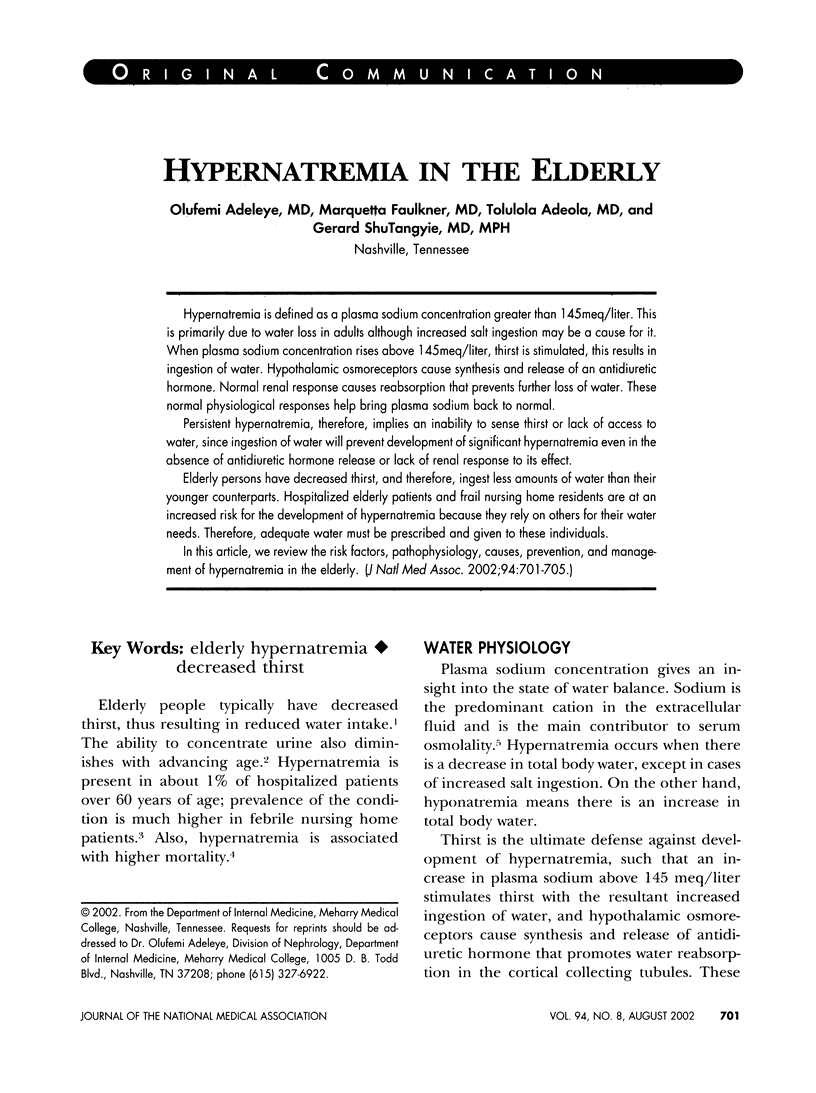
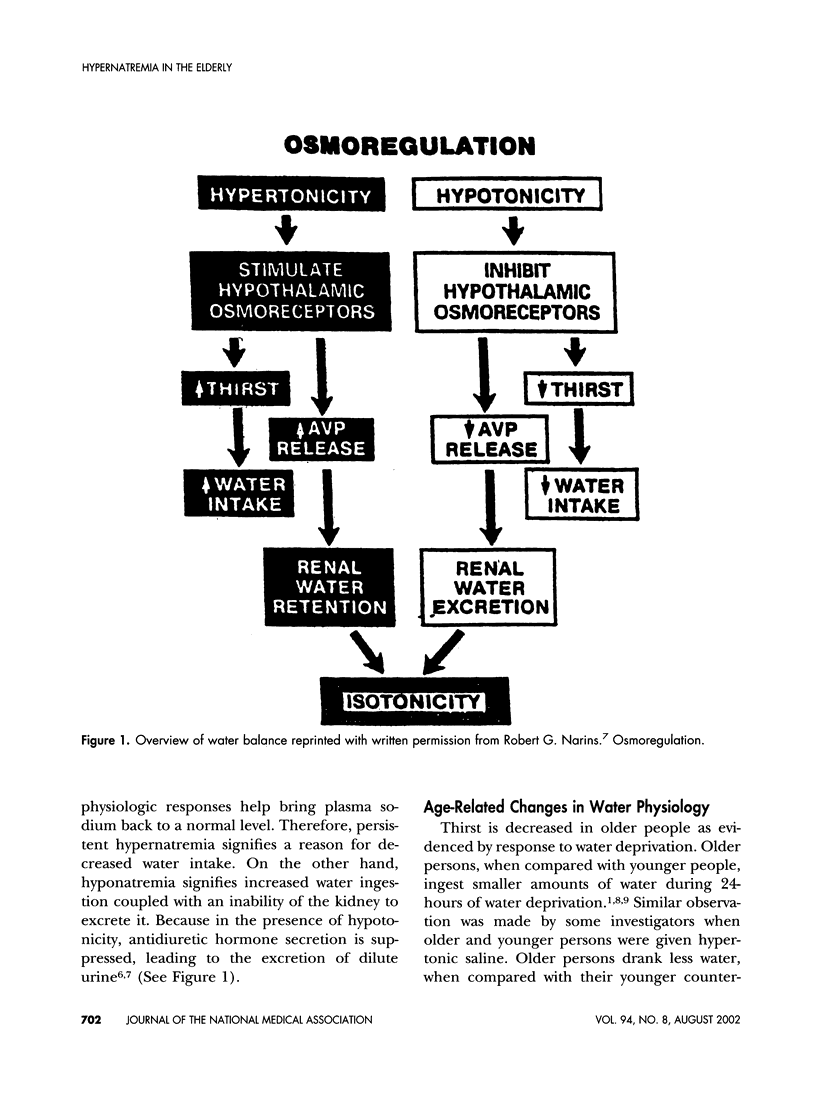
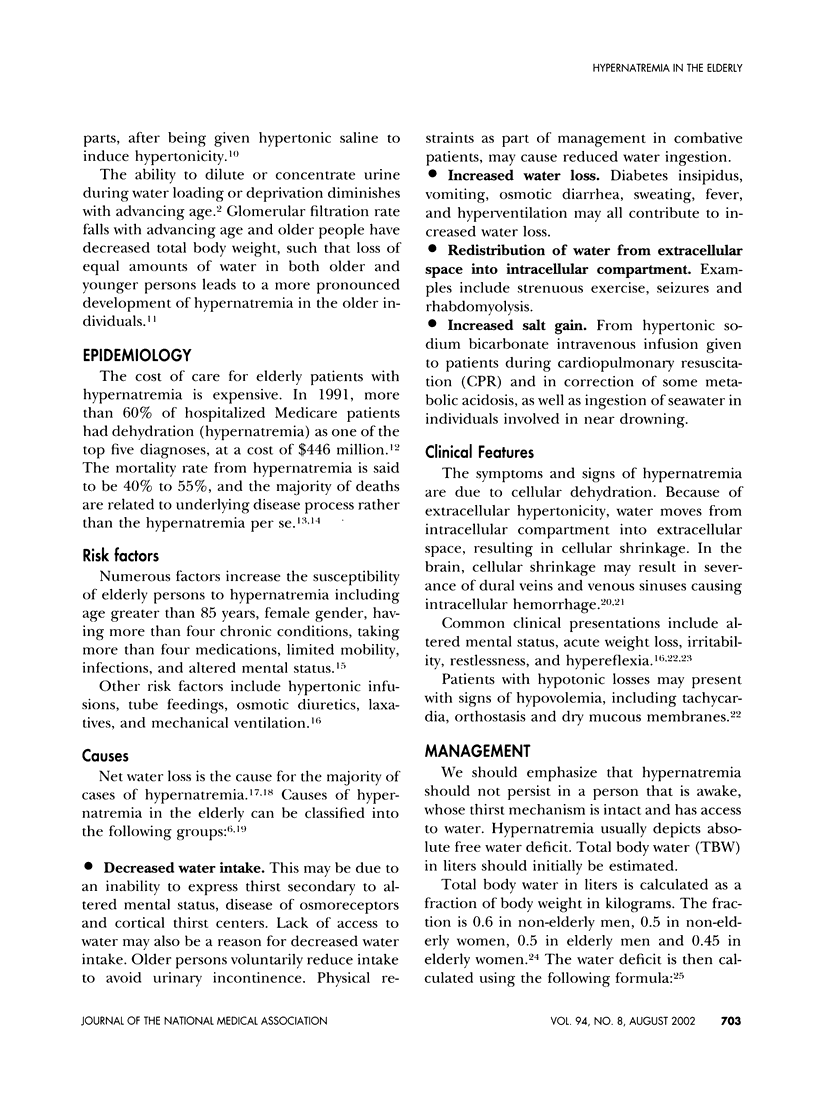
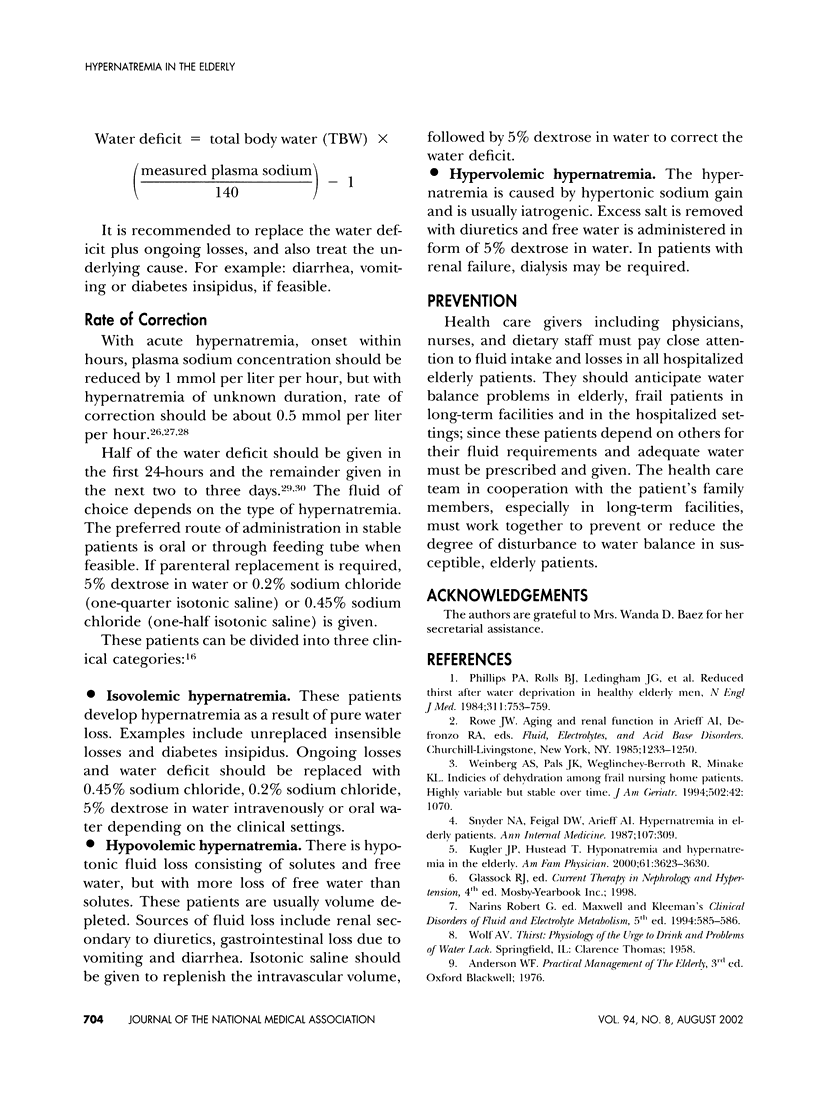
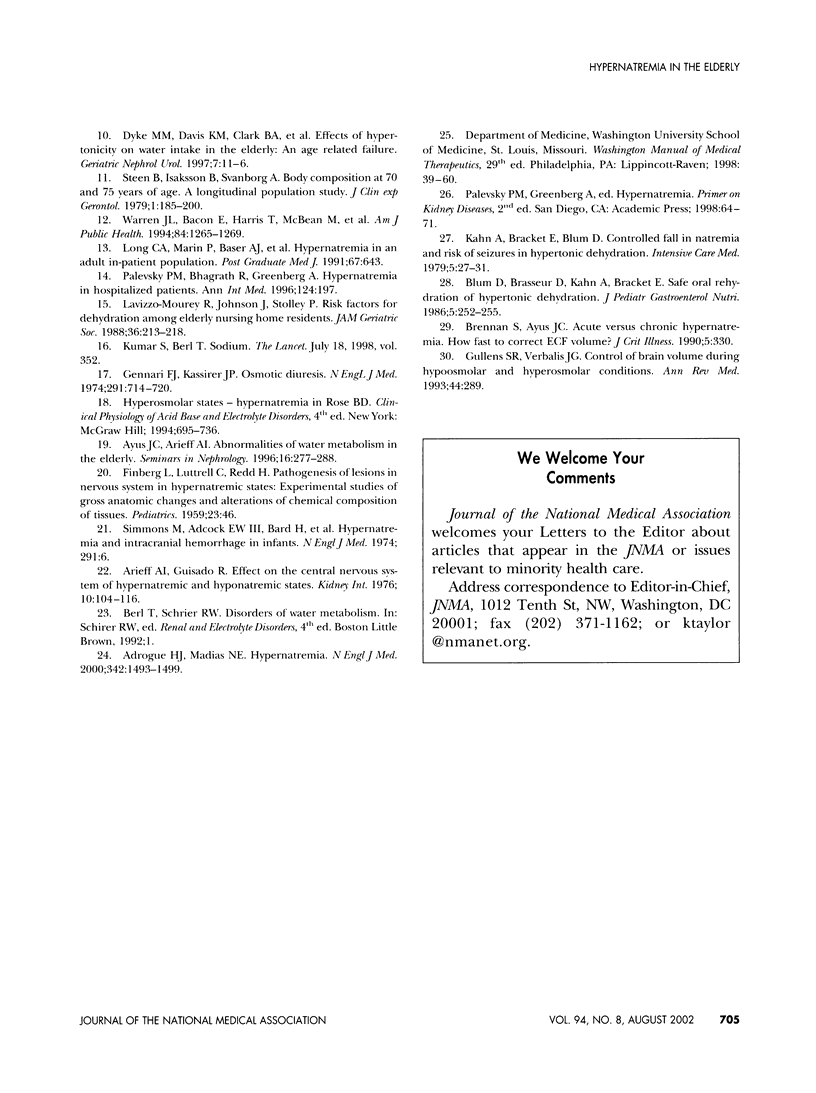
Selected References
These references are in PubMed. This may not be the complete list of references from this article.
- Adrogué H. J., Madias N. E. Hypernatremia. N Engl J Med. 2000 May 18;342(20):1493–1499. doi: 10.1056/NEJM200005183422006. [DOI] [PubMed] [Google Scholar]
- Arieff A. I., Guisado R. Effects on the central nervous system of hypernatremic and hyponatremic states. Kidney Int. 1976 Jul;10(1):104–116. doi: 10.1038/ki.1976.82. [DOI] [PubMed] [Google Scholar]
- Ayus J. C., Arieff A. I. Abnormalities of water metabolism in the elderly. Semin Nephrol. 1996 Jul;16(4):277–288. [PubMed] [Google Scholar]
- FINBERG L., LUTTRELL C., REDD H. Pathogenesis of lesions in the nervous system in hypernatremic states. II. Experimental studies of gross anatomic changes and alterations of chemical composition of the tissues. Pediatrics. 1959 Jan;23(1 Pt 1):46–53. [PubMed] [Google Scholar]
- Gennari F. J., Kassirer J. P. Osmotic diuresis. N Engl J Med. 1974 Oct 3;291(14):714–720. doi: 10.1056/NEJM197410032911408. [DOI] [PubMed] [Google Scholar]
- Gullans S. R., Verbalis J. G. Control of brain volume during hyperosmolar and hypoosmolar conditions. Annu Rev Med. 1993;44:289–301. doi: 10.1146/annurev.me.44.020193.001445. [DOI] [PubMed] [Google Scholar]
- Kahn A., Brachet E., Blum D. Controlled fall in natremia and risk of seizures in hypertonic dehydration. Intensive Care Med. 1979 Mar;5(1):27–31. doi: 10.1007/BF01738999. [DOI] [PubMed] [Google Scholar]
- Kugler J. P., Hustead T. Hyponatremia and hypernatremia in the elderly. Am Fam Physician. 2000 Jun 15;61(12):3623–3630. [PubMed] [Google Scholar]
- Lavizzo-Mourey R., Johnson J., Stolley P. Risk factors for dehydration among elderly nursing home residents. J Am Geriatr Soc. 1988 Mar;36(3):213–218. doi: 10.1111/j.1532-5415.1988.tb01803.x. [DOI] [PubMed] [Google Scholar]
- McAloon Dyke M., Davis K. M., Clark B. A., Fish L. C., Elahi D., Minaker K. L. Effects of hypertonicity on water intake in the elderly: an age-related failure. Geriatr Nephrol Urol. 1997;7(1):11–16. doi: 10.1023/a:1008252032016. [DOI] [PubMed] [Google Scholar]
- Palevsky P. M., Bhagrath R., Greenberg A. Hypernatremia in hospitalized patients. Ann Intern Med. 1996 Jan 15;124(2):197–203. doi: 10.7326/0003-4819-124-2-199601150-00002. [DOI] [PubMed] [Google Scholar]
- Phillips P. A., Rolls B. J., Ledingham J. G., Forsling M. L., Morton J. J., Crowe M. J., Wollner L. Reduced thirst after water deprivation in healthy elderly men. N Engl J Med. 1984 Sep 20;311(12):753–759. doi: 10.1056/NEJM198409203111202. [DOI] [PubMed] [Google Scholar]
- Simmons M. A., Adcock E. W., 3rd, Bard H., Battaglia F. C. Hypernatremia and intracranial hemorrhage in neonates. N Engl J Med. 1974 Jul 4;291(1):6–10. doi: 10.1056/NEJM197407042910102. [DOI] [PubMed] [Google Scholar]
- Snyder N. A., Feigal D. W., Arieff A. I. Hypernatremia in elderly patients. A heterogeneous, morbid, and iatrogenic entity. Ann Intern Med. 1987 Sep;107(3):309–319. doi: 10.7326/0003-4819-107-2-309. [DOI] [PubMed] [Google Scholar]
- Warren J. L., Bacon W. E., Harris T., McBean A. M., Foley D. J., Phillips C. The burden and outcomes associated with dehydration among US elderly, 1991. Am J Public Health. 1994 Aug;84(8):1265–1269. doi: 10.2105/ajph.84.8.1265. [DOI] [PMC free article] [PubMed] [Google Scholar]


